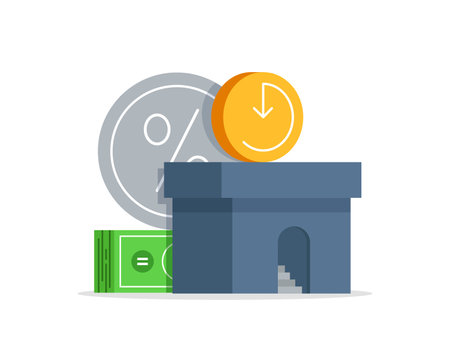1. Understanding Credit Scores
Your credit score is a crucial part of your financial health. It affects your ability to get loans, credit cards, and even rent an apartment. But what exactly is a credit score, how is it calculated, and why does it matter? Lets break it down in simple terms.
What Is a Credit Score?
A credit score is a three-digit number that represents your creditworthiness. Lenders use this score to determine how risky you are as a borrower. The most commonly used credit scoring model is the FICO® Score, which ranges from 300 to 850. The higher your score, the better your chances of getting approved for loans and receiving favorable interest rates.
How Is a Credit Score Calculated?
Your credit score is determined by several factors. Each factor carries a different weight in the calculation:
| Factor | Percentage | Description |
|---|---|---|
| Payment History | 35% | Whether you make payments on time. |
| Amounts Owed | 30% | Your credit utilization ratio (how much debt you have compared to your total available credit). |
| Length of Credit History | 15% | The age of your oldest and newest accounts. |
| Credit Mix | 10% | The variety of credit accounts you have (e.g., credit cards, auto loans, mortgages). |
| New Credit Inquiries | 10% | The number of recent applications for new credit. |
Why Does Your Credit Score Matter?
Your credit score impacts many aspects of your financial life. Here’s why it’s important:
(1) Loan and Credit Card Approvals
Lenders use your score to decide whether to approve your application. A high score increases your chances of approval.
(2) Interest Rates
A higher credit score often means lower interest rates on loans and credit cards, saving you money over time.
(3) Renting an Apartment
A good credit score can make it easier to rent an apartment since landlords check your credit history before approving tenants.
(4) Employment Opportunities
Certain employers check credit reports as part of their hiring process, especially for jobs in finance or management roles.
(5) Insurance Premiums
Your credit history can influence the cost of auto or homeowner’s insurance premiums.
Your credit score plays a significant role in your overall financial well-being. Understanding how it works is the first step toward improving and maintaining a strong score.
2. Checking and Monitoring Your Credit Report
Keeping an eye on your credit report is essential for maintaining a good credit score. By regularly checking your report, you can identify errors, spot fraudulent activities, and take action before they negatively impact your credit. In this section, we’ll go over how to obtain your credit report for free and what to look for when reviewing it.
How to Get Your Credit Report for Free
You’re entitled to a free credit report from each of the three major credit bureaus—Experian, Equifax, and TransUnion—once every 12 months. Here’s how you can obtain yours:
(1) Visit AnnualCreditReport.com
The only official website authorized by federal law to provide free credit reports is AnnualCreditReport.com. You can request reports from all three bureaus at once or stagger them throughout the year.
(2) Contact Credit Bureaus Directly
If you prefer not to use the website, you can also request your reports by phone or mail:
- Equifax: Call 1-800-685-1111 or visit Equifax.com
- Experian: Call 1-888-EXPERIAN (1-888-397-3742) or visit Experian.com
- TransUnion: Call 1-800-916-8800 or visit TransUnion.com
What to Look for in Your Credit Report
Once you receive your credit report, carefully review it for any discrepancies or suspicious activity. Here are key areas to check:
| Section | What to Check |
|---|---|
| Personal Information | Name, address, Social Security number – ensure they are correct and up-to-date. |
| Accounts & Payment History | Look for accounts that aren’t yours or late payments that were mistakenly reported. |
| Credit Inquiries | If you see inquiries you don’t recognize, it could be a sign of identity theft. |
| Public Records | Check for bankruptcies, liens, or judgments that may be inaccurately listed. |
| Collection Accounts | If an account is sent to collections by mistake, dispute it immediately. |
How to Dispute Errors on Your Credit Report
If you find incorrect information on your credit report, take these steps to correct it:
(1) Contact the Credit Bureau
You can file a dispute online through each bureau’s website or send a written dispute letter with supporting documentation.
(2) Notify the Creditor
If the error comes from a lender (e.g., incorrect late payment), reach out to them directly to resolve the issue.
(3) Follow Up Regularly
The credit bureau has 30 days to investigate and respond. Make sure you track progress and follow up if necessary.
![]()
3. Building and Maintaining Good Credit Habits
Developing strong credit habits is essential for achieving and maintaining a high credit score. By consistently practicing good financial behaviors, you can improve your creditworthiness and ensure long-term financial health. Below are key habits to focus on:
Making On-Time Payments
Your payment history is the most significant factor influencing your credit score. Even one missed or late payment can negatively impact your credit. Follow these strategies to ensure timely payments:
- Set Up Automatic Payments: Most banks and credit card companies offer autopay options to prevent missed due dates.
- Use Payment Reminders: Set calendar alerts or enable notifications from your bank’s app.
- Make At Least the Minimum Payment: If you cant pay the full balance, always make at least the minimum payment to avoid late fees and credit damage.
Maintaining Low Credit Utilization
Your credit utilization ratio—the percentage of your available credit that youre using—plays a major role in determining your score. Keeping this ratio low shows lenders that you manage credit responsibly.
| Utilization Rate | Impact on Credit Score |
|---|---|
| <10% | Excellent – Ideal for maximizing your score |
| 10-30% | Good – Generally considered acceptable |
| >30% | Poor – May negatively affect your score |
(1) Pay Down Balances Regularly
If possible, make multiple payments throughout the month rather than waiting until the due date.
(2) Request a Credit Limit Increase
If your income has increased or you have a strong payment history, requesting a higher limit can help lower your utilization percentage.
(3) Avoid Maxing Out Your Credit Cards
Avoid using too much of your available credit at once, as it can signal financial distress to lenders.
Avoiding Excessive Credit Inquiries
Lenders check your credit report when you apply for new credit, which results in a hard inquiry. Too many inquiries within a short period can lower your score.
(1) Space Out Credit Applications
Avoid applying for multiple lines of credit within a short time frame.
(2) Prequalify Before Applying
Many lenders allow you to check if youre likely to be approved without affecting your score.
(3) Be Selective About New Accounts
Only apply for new credit when necessary to minimize unnecessary hard inquiries.
Cultivating these habits will help you build and maintain strong credit over time. By consistently managing your finances wisely, youll set yourself up for greater financial stability and access to better borrowing opportunities.
4. Strategies to Improve Your Credit Score
Improving your credit score takes time and strategic planning. By following these actionable steps, you can boost your score and build a strong financial foundation.
Pay Down Debt Strategically
One of the most effective ways to improve your credit score is by reducing your outstanding debt. Here are some strategies to consider:
| Strategy | Description |
|---|---|
| Snowball Method | Pay off your smallest debts first while making minimum payments on larger debts. This builds momentum and keeps you motivated. |
| Avalanche Method | Focus on paying off debts with the highest interest rates first. This saves money on interest over time. |
| Debt Consolidation | If you have multiple high-interest debts, consider consolidating them into a single loan with a lower interest rate. |
Become an Authorized User
If you have a family member or close friend with good credit, ask if they can add you as an authorized user on their credit card. This can help improve your credit history because:
(1) Their Positive Payment History Helps You
Their on-time payments may be reported to your credit file, which can boost your score.
(2) It Can Increase Your Credit Age
If the account has been open for a long time, it may increase the average age of your credit accounts.
(3) No Responsibility for Payments
You don’t need to use the card or make payments, but you still benefit from its history.
Diversify Your Credit Mix
Lenders like to see a mix of different types of credit accounts. A well-balanced credit profile includes:
(1) Revolving Credit
This includes credit cards and lines of credit. Keeping balances low and making timely payments improves your score.
(2) Installment Loans
Auto loans, student loans, and mortgages show that you can manage fixed monthly payments responsibly.
(3) Retail Accounts
A store credit card or financing plan from a retailer adds variety to your credit mix.
5. Avoiding Common Credit Mistakes
Improving your credit score isnt just about what you do right—it’s also about avoiding common mistakes that can hurt your score. Many people unknowingly make choices that negatively impact their credit, making it harder to get approved for loans or secure favorable interest rates. Here are some key pitfalls to watch out for.
(1) Missing Payments
One of the biggest factors affecting your credit score is your payment history. Missing even one payment can have a significant negative impact. Set up automatic payments or reminders to ensure you always pay on time.
(2) Closing Old Credit Accounts
Closing an old credit card may seem like a good idea, especially if you no longer use it, but this can actually hurt your credit score. Length of credit history is an important factor in determining your score, so keeping older accounts open (even with minimal use) can be beneficial.
(3) Taking on Too Much New Debt at Once
Applying for multiple new credit accounts within a short period can lower your score due to hard inquiries and increased overall debt. Lenders may view this as a sign of financial instability. Be strategic when opening new accounts and only apply when necessary.
(4) Maxing Out Your Credit Cards
Your credit utilization ratio—how much of your available credit you’re using—plays a crucial role in your credit score. Keeping balances low relative to your total credit limit helps maintain a healthy score.
Credit Utilization Guide
| Utilization Percentage | Impact on Credit Score |
|---|---|
| 0-30% | Best for maintaining a high score |
| 31-50% | May slightly lower your score |
| 51-100% | Can significantly harm your score |
(5) Ignoring Your Credit Report
Mistakes on your credit report can drag down your score without you realizing it. Regularly checking your report allows you to catch and dispute errors before they cause lasting damage.
How to Check Your Credit Report
- Get a free annual credit report from AnnualCreditReport.com.
- Review reports from all three major bureaus: Experian, Equifax, and TransUnion.
- Dispute any inaccuracies immediately.
(6) Relying Too Much on One Type of Credit
A diverse mix of credit types—such as credit cards, auto loans, and mortgages—can positively impact your score. If you only have one type of credit account, consider diversifying responsibly.
Avoiding these common mistakes will help keep your credit score strong and improve your financial health over time.


